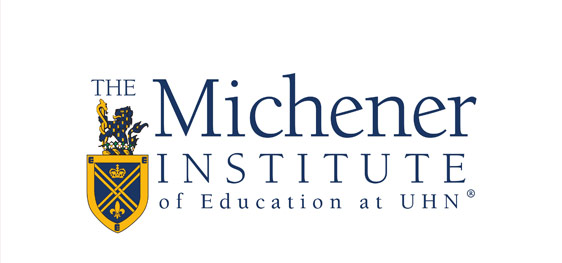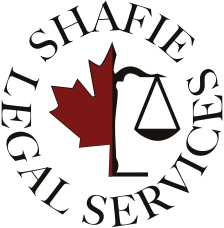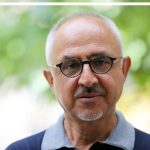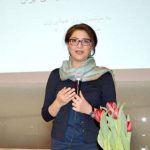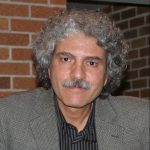Iranian Intellectuals
Lineages and Legacies
Tirgan Festival is proud to host this incredible series of four panel discussions on the history and evolution of intellectualism in Iran. The panellists—academic experts in the field who have been invited from all around the globe—will discuss the history of intellectualism, and its relationship with the social and political trajectory of modern Iran from the Qajar period to today. Each panel will have a different focus but situate its topics and themes within the overall context of the series.
Guests will be allowed to ask questions from the speakers at the end of each panel. Refreshments and lunch will also be provided throughout the day.
Chaired by Dr. Ramin Jahanbegloo
Mission Statement of the Chair:
Ever since the appearance of the notion of the “intellectual” in France in late 19th century, theorists and political activists in the West and the “Third World” countries have been preoccupied with attempting to define just what an intellectual is, or ought to be. Is an intellectual a detached observer, one who is free from the immediate concerns of life, and interested primarily in the pursuit of perennial truths, or is an intellectual one who very much engages with politics and society and necessarily challenges power –one who, in Edward Said's words, "is a spirit in opposition” and according to Jean-Paul Sartre “does not mind its own business”?At the crossroads between tradition and modernity in the modern history of Iran stand generations of intellectuals, diverse in their backgrounds and views, who struggled to mediate the transition from traditionalism to a modern mode of thinking. Yet for many decades the development of democratic ideas was held back by intellectual elites who surrendered their critical independence to the dogmas of ideologies such as Stalinism and Islamism. As a result, many among Iranian intellectuals became handmaidens of power rather than agents of the Iranian Enlightenment. That is the reason why the Iranian Revolution was not accompanied with an intrinsically critical nature among the Iranian intellectuals which would impel them to speak the truth to power. Actually, in 1978-79, when calls were made by revolutionaries for people to remove what they called “the representatives of the Pahlavi regime and Western imperialism”, and to return to their roots and their authentic culture, the so-called “progressive” intellectuals did not question the meaning of this political attitude. Instead, they joined forces with the clergy, since they themselves had perhaps inadvertently contributed to the rise of the revolution in Iran. The shock of the Revolution and the re-evaluation of political ideals have been part of a learning process that has generated a collective sense of responsibility among post-Revolutionary intellectuals in Iran and led them to opt for cultural dissent rather than ideological politics. Forty years after the Revolution, how can we evaluate the role of Iranian intellectuals in the history of Iranian modernity and in the process of the Iranian democratic debate? This question and many others are some of the key points which will be discussed in the one-day conference organized by Tirgan Festival on July 27, 2019.
Latecomers may not be admitted
Guests
Please scroll down for the schedule.Afshin Matin-Asgari
Scholar
Ali Ansari
Scholar
Ali Mirsepassi
scholar
Arsalan Kahnemayipour
Scholar
Farzaneh Milani
Scholar
Farzin Vahdat
Scholar
Haideh Moghissi
Scholar
Khatereh Sheibani
Scholar
Mehrzad Boroujerdi
Scholar
Minoo Derayeh
Scholar
Mohsen Mottaghi
Scholar
Mojtaba Mahdavi
Scholar
Nasrin Rahimieh
Scholar
Nasser Rahmaninejad
Scholar
Ramin Jahanbegloo
Conference Chair / Scholar
Saeed Hariri
Moderator
Saeed Paivandi
Scholar
Schedule
Please note that the talks and panel discussions will be conducted in English.| 8:30 AM | 9:00 AM | Registration – Coffee and Refreshments |
| 9:00 AM | 9:20 AM | Opening Remarks |
| 9:20 AM | 10:40 AM | Panel I - From Qajar to the Early PahlaviTradition and Modernity in the Mirror of Iranian Intellectuals: From Qajar to the Early Pahlavi Period Moderator: Mr. Saeed Hariri Professor Ali Mirsepassi ( New York University-USA): “Crafting Iranian Social Imaginary: Intellectuals during the Two World Wars” Professor Saeed Paivandi (University of Lorraine- France): “Amir Kabir: A Reformist and Pioneer of Modernization in the Traditional State” Professor Ali Ansari (St. Andrews University- Scotland): “Iranian Intellectuals and the Narratives of the Enlightenment” |
| 10:40 AM | 10:55 AM | Break – Coffee and Refreshments |
| 10:55 AM | 12:15 PM | Panel II - The Second Pahlavi EraIranian Intellectuals between Statesmanship and Dissent: The Second Pahlavi Era Moderator: Professor Arsalan Kahnemuyipour (University of Toronto-Canada) Professor Mehrzad Boroujerdi (Syracuse University): “Endangered Species: Intellectual-Statesmen in Iran” Professor Farzin Vahdat (Vassar College): “Al-e Ahmad and the discourse of modernity in Iran Professor Afshin-Matin Asgari (California State University-USA):“In Search of Liberal-Democratic Thought: From Foroughi to Mosaddeq” |
| 12:15 PM | 1:00 PM | Lunch will be served |
| 1:00 PM | 2:20 PM | Panel III - Women Intellectuals in Pre- and Post-Revolutionary IranArticulating Gender: Women Intellectuals in Pre- and Post-Revolutionary Iran Moderator: Professor Haideh Moghissi (York University- Canada) Professor Khatereh Sheibani (York University-Canada): "Women Filmmakers in the Pahlavi Era". Professor Farzaneh Milani: (University of Virginia- USA): “And here I am’: Forough Farrokhzad and Modernity” Professor Nasrin Rahimieh: (University of California-Irvine-USA): “Simin Daneshvar and the Forging of an Intellectual” |
| 2:20 PM | 2:35 PM | Break – Coffee and Refreshments |
| 2:35 PM | 3:55 PM | Panel IV - Mapping Iranian Intellectuals after the Revolution of 1979Mapping Iranian Intellectuals after the Revolution of 1979 Moderator: Professor Minoo Derayeh (York University) Professor Mojtaba Mahdavi (University of Alberta-Canada): “A Critique of three Generations of Muslim Left in Iran: From Nakhshab to Neo-Shariatis” Professor Mohsen Mottaghi (University of Sorbonne-France): “Muslim Intellectuals after the Revolution” Mr. Nasser Rahmaninejad ( Stage Director): “Intellectuals and Creative Art in Post-Revolutionary Iran” |
| 3:55 PM | 4:00 PM | Closing Remarks and Vote of Thanks |

